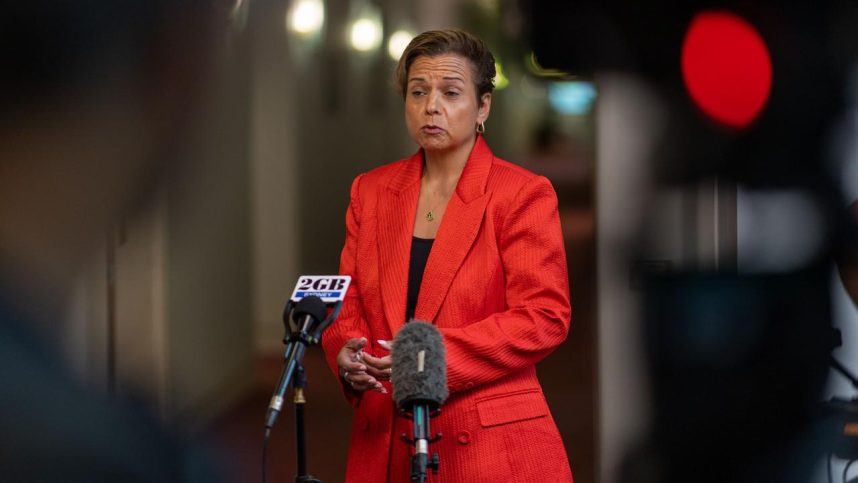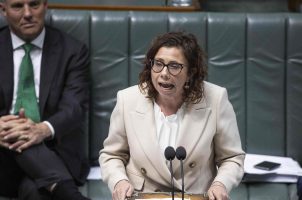Australia Launches Nationwide Self-Exclusion Register for Online Gamblers
Posted on: July 10, 2023, 07:52h.
Last updated on: July 10, 2023, 11:38h.
Australia’s looking to curtail what it believes is a major issue with online gambling in the country. In a step toward better responsible gaming, and perhaps nationwide regulations, a new self-exclusion register will soon come online.

BetStop is being billed as an innovative solution to address the issue of gambling addiction, replacing a collection of state-led initiatives. Starting on August 21, the central government will unveil its comprehensive and free register, enabling individuals battling gambling addiction to register voluntarily.
The individuals will have the option of excluding themselves from online betting platforms for various durations, ranging from a minimum of three months to an indefinite period. Once listed, the exclusion will apply to all forms of online gaming.
Long Time Coming
Australia’s 150 authorized online betting enterprises will be greatly impacted. They will no longer be permitted to accept registrations or receive wagers from those on BetStop. In addition, they won’t be able to market their services and products to those on the list.
This forthcoming registration suspension is a consequence of the recently published parliamentary investigation into the reform of online gambling. Following the investigation’s proposal of a complete ban on online betting, the government is now seriously considering its implementation.
The report made it to the desk of Michelle Rowland, Australia’s communications minister, two weeks ago. She has repeatedly told the gaming industry and parliamentarians that the goal is to work through the recommendations as quickly as possible.
As the government mulls over the possible changes, BetStop will receive promotion through various channels, such as operators’ websites, betting applications, and all marketing material. In addition, prior to accepting any bets, operators must ensure the verification of a customer’s identity at the time of account creation.
In a move to bolster other betting reform initiatives, Rowland announced the elimination of the previous mandate to verify a customer’s identity within a 72-hour window. This modification, accompanied by the arrival of BetStop, aims at integrating novel cautionary messages and a conclusion to advertising practices.
Rewriting Responsible Gambling Codes
Carol Bennett, the CEO of Alliance for Gaming Reform, expressed her belief in a statement that BetStop was long overdue. She believes that Australia has tolerated a flawed system of self-imposed exclusion programs that have been poorly executed, and a central system will overcome those flaws.
Kai Cantwell, the CEO of Responsible Wagering Australia (RWA), responded as well. He expressed the company’s commitment to collaborate with the government in order to effectively implement the registration process. He highlighted the role the Australian Communications and Media Authority (ACMA) plays, and stressed that it needs to “work closely with providers on load testing and ensuring there are no gaps.”
As with any gambling market, Australia’s industry has been polarizing. There are those who argue that Australians “lose” billions of dollars a year and the government needs to stop them. Then there are those who assert that consumers are enjoying a form of entertainment that allows them to spend their money where they see fit.
So far, the gambling opposition is winning, which is why the market is becoming increasingly restrictive. However, too many restrictions could have the opposite effect.
The result, as the RWA pointed out this past May, could be far worse. It could push more people to offshore gambling sites, despite the ACMA’s attempts to block them all.
Australia could lose as much as AU$3 billion (US$1.98 billion) over the next five years to the offshore segment, although the figure could ultimately be higher, as too many restrictions will possibly drive even more consumers to the unregulated market.
Related News Articles
Australia’s Gambling Ads to Carry Safer Messages to Deter Spending
Gamblers in Belgium To See Drastic Reductions in Deposit Limits
New Zealand Explores Taxing Offshore Gaming Operators
Most Popular
Mega Millions Reportedly Mulling Substantial Ticket Price Increase
NoMad Hotel to Check Out of Park MGM on Las Vegas Strip
Most Commented
-
End of the Line for Las Vegas Monorail
— April 5, 2024 — 90 Comments -
Mega Millions Reportedly Mulling Substantial Ticket Price Increase
— April 16, 2024 — 9 Comments -
Long Island Casino Opponents Love New York Licensing Delays
— March 27, 2024 — 5 Comments
















Last Comment ( 1 )
When you have seen the true extent of gambling harm in an individual and in the familiy in which they live the reality of gambling addiction becomes real. The ability to self-exclude themselves from all forms of gambling Nationwide would not negatively impact on anyone, however the inability to self-exclude Nationwide could have severe negative affects on the gambler and their family. Self Exclusion is a choice and isn't choice a human right? Without Self-Exclusion options the addiction makes the choice for the individual. Ethically having that choice serves everyone.